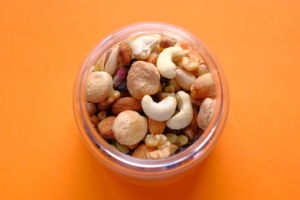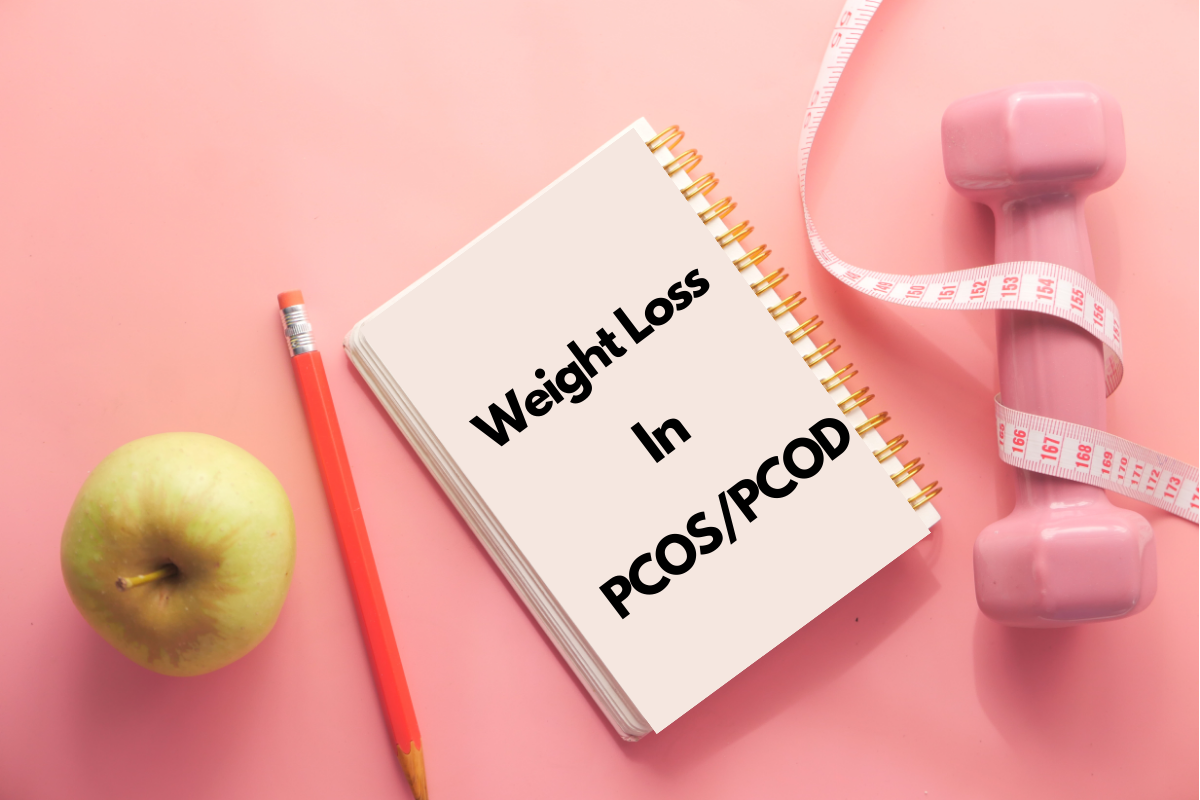Polycystic Ovary Syndrome (PCOS) and Polycystic Ovary Disorder (PCOD) are intricate hormonal conditions that affect countless women globally. Among the many challenges they bring, managing weight stands out as a primary concern. However, the good news is that with a well-informed approach, it is possible to shed excess pounds and improve overall well-being. In this extensive guide, we will explore effective approaches to achieving weight loss in PCOS/PCOD, offering valuable insights and practical tips.
Understanding PCOS/PCOD and Weight Gain
Before we explore the strategies for effective weight loss in PCOS/PCOD, it’s crucial to grasp the intricate relationship between PCOS/PCOD and weight gain. Hormonal imbalances, particularly insulin resistance, play a pivotal role in driving weight gain among individuals with these conditions. Now, let’s go a bit deeper into how these things work:
- Insulin Resistance: Many women with PCOS/PCOD experience insulin resistance, a condition where their bodies do not respond efficiently to insulin. This leads to elevated insulin levels, which can trigger fat storage, especially around the abdominal area.
- Hormonal Imbalance: PCOS/PCOD is characterized by higher levels of androgens (male hormones) and lower levels of estrogen and progesterone. These hormonal imbalances further contribute to weight gain and fat accumulation.
Now that we have established the underlying factors, let’s explore a comprehensive set of strategies for effective weight loss in PCOS/PCOD:
1. A Balanced Diet is Key

Achieving sustainable weight loss in PCOS/PCOD begins with a balanced diet. Here’s a detailed breakdown:
- Focus on Whole Foods: Prioritize whole, unprocessed foods in your daily meals. Include generous servings of fruits, vegetables, lean proteins, whole grains, and healthy fats. Minimize or eliminate refined sugars and carbohydrates, as they can exacerbate insulin resistance.
- Portion Control: Cultivate mindfulness around portion sizes to prevent overeating. Opt for smaller, more frequent meals throughout the day to help stabilize blood sugar levels.
- Embrace Low Glycemic Index (GI) Foods: Incorporate foods with a low GI into your diet. These foods have a gentler impact on blood sugar levels and include options like quinoa, oats, and legumes.
2. Monitor Carbohydrate Intake

Strategic carbohydrate management is crucial when managing weight loss in PCOS/PCOD:
- Choose Complex Carbs: Opt for complex carbohydrates such as sweet potatoes, brown rice, and whole wheat pasta. These release energy gradually, preventing abrupt spikes in blood sugar levels.
- Limit Simple Carbs: Minimize consumption of sugary foods, white bread, and sugary beverages, as they can lead to rapid blood sugar and insulin spikes.
3. Lean Protein is Essential

Incorporating lean protein sources into your meals offers multiple benefits:
- Diverse Protein Sources: Include lean protein sources like chicken, turkey, fish, tofu, and legumes in your diet. Protein promotes satiety and supports muscle maintenance, a critical factor for a healthy metabolism.
4. Healthy Fats are Your Friend

Don’t shy away from healthy fats – they play a pivotal role in balanced nutrition:
- Integrate Healthy Fats: Incorporate healthy fats from sources such as avocados, nuts, seeds, and olive oil into your meals. These fats contribute to satiety and are essential for hormone production.
Also Read: Is Ghee Good For Weight Loss?
5. Regular Exercise Matters

Exercise is a fundamental component of effective weight loss management with PCOS/PCOD:
- Cardiovascular Exercise: Engage in regular aerobic activities like brisk walking, jogging, cycling, or swimming. Aim for a minimum of 150 minutes of moderate-intensity aerobic activity every week.
- Strength Training: Supplement your routine with strength training exercises. Building lean muscle mass not only contributes to a more efficient metabolism but also enhances insulin sensitivity.
6. Mindful Eating

The practice of mindful eating fosters a more attuned relationship with your body’s hunger and fullness cues:
- Cultivate Mindfulness: Develop mindfulness around mealtime by savoring each bite and minimizing distractions. This approach helps prevent overeating and emotional eating.
7. Stay Hydrated

Adequate hydration is crucial, as thirst is sometimes mistaken for hunger:
- Water Consumption: Maintain sufficient water intake throughout the day. Adequate hydration helps deter unnecessary snacking driven by perceived hunger. You can explore a variety of infused water recipes to add a refreshing twist to your daily hydration.
8. Get Enough Sleep

Quality sleep is a non-negotiable aspect of successful weight loss management:
- Sleep and Hormones: Aim for 7-9 hours of quality sleep each night. Poor sleep patterns can disrupt hormone regulation, increase appetite, and hinder weight loss efforts.
9. Manage Stress

Stress management is essential for individuals with PCOS/PCOD:
- Stress-Reduction Techniques: Explore stress-reduction techniques such as yoga, meditation, deep breathing exercises, or engaging in hobbies that bring you joy. Chronic stress can exacerbate hormonal imbalances.
10. Medication and Professional Guidance

In certain cases, healthcare professionals may recommend medications to address insulin resistance or other symptoms associated with PCOS/PCOD. It is crucial to seek guidance from a healthcare provider before initiating any medication.
Conclusion
Losing weight while navigating PCOS/PCOD may present unique challenges, but it is indeed attainable with a well-rounded approach. Emphasize a balanced diet, regular physical activity, and lifestyle modifications that promote weight loss in PCOS/PCOD, insulin sensitivity, and hormonal equilibrium. Acknowledge that progress may unfold gradually, and patience and consistency are your allies in this journey.
It is strongly advised to consult with a healthcare provider or a registered dietitian with expertise in PCOS/PCOD for personalized guidance. This ensures that your weight loss strategy in PCOS/PCOD aligns with your specific needs and health objectives. With determination and the right strategies, you can effectively manage your weight and enhance your overall well-being despite the complexities associated with PCOS/PCOD.
Love Yourself ❤️

